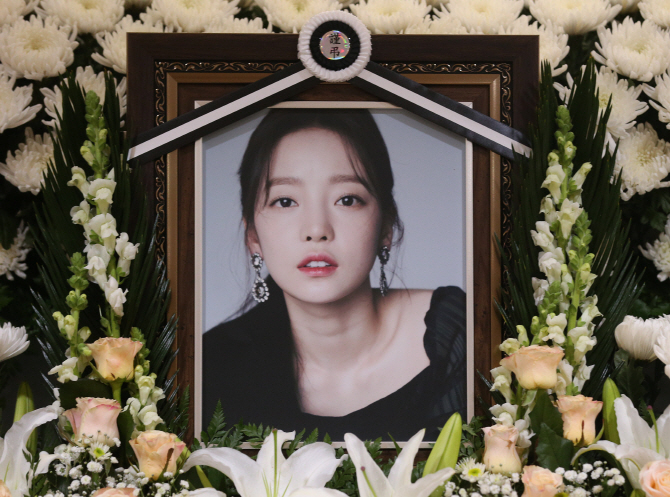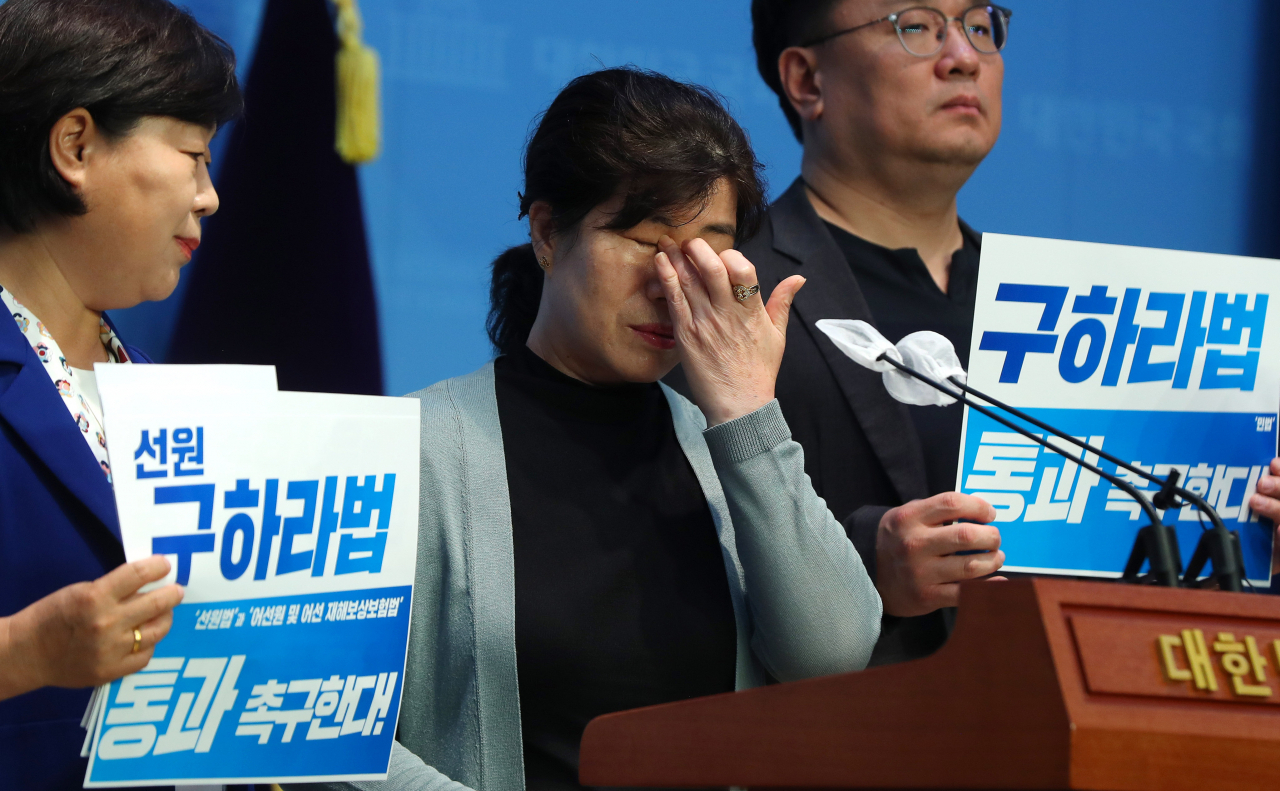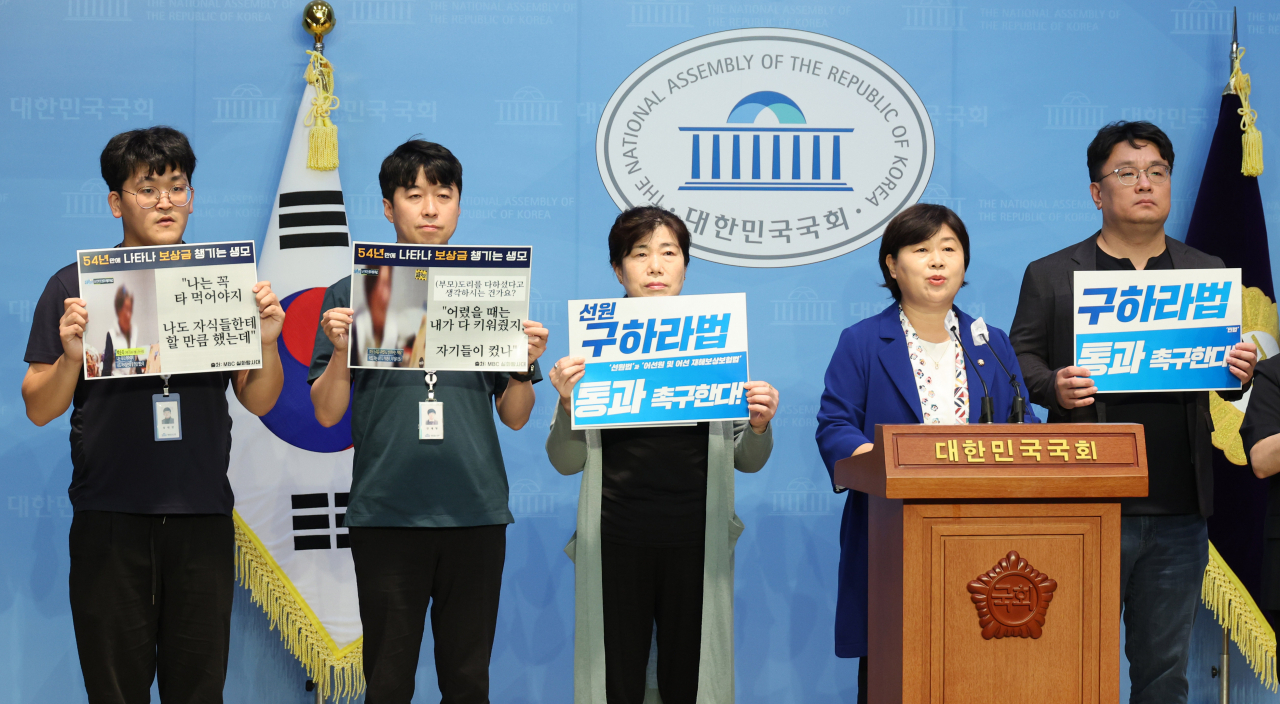Absentee mother’s claims for son's life insurance money sparks renewed calls for ‘Goo Hara law’
Deceased sailor’s mother claims son’s money 50 years after abandoning him, as legislation to prevent absentee parents inheritance claims is pending in National Assembly
By Yoon Min-sikPublished : Aug. 25, 2023 - 13:57

Last week, the Busan High Court recommended a settlement in a legal dispute over a deceased sailor's inheritance that broke out between his mother and older sister. The mother, however, refused the court order to hand over 42 percent of his son's insurance money to the sister, despite leaving her children at a young age and being out of touch for 54 years.
The news sparked outrage across the country and reignited talks for the legislative change to exclude parents that abandoned their children from inheritance, otherwise known as the “Goo Hara law.” It is named after the deceased K-pop star whose mother tried to claim her money after her death, despite not being in her life since Goo was 9 years old.
South Korea's inheritance law makes it possible for absentee parents to claim their children’s money, based solely on the fact they are related by blood. The revision for this law was first proposed in 2020, and is still pending in the National Assembly.
In an interview with local media, the mother of the deceased sailor, Kim Jong-an, said that she “raised him when he was little. He didn't raise himself. I'll get that insurance money. I did enough for my kids.” Kim was 2 years old when he saw his mother for the last time.
Legal loophole
At the time of Kim's death, he was in a common-law marriage which is not recognized by the law. As his closest relation by law, his mother was contacted by the insurance company and at first did not even recognize that she had a son by that name.
The mother-son reunion after 54 years happened via paperwork -- Kim's body has still not been recovered since his presumed death in January of 2021 -- and she claimed the life insurance money worth 237.7 million won ($179,000).
The Busan court recommended that she should hand over 100 million won to her daughter, who raised his brother after they were abandoned, but the mother refused.
“When our older brother died in 1999, she (the mother) was nowhere to be seen, despite the police contacting her,” Kim's sister said at an open forum for the Goo Hara law at the National Assembly held earlier this week. “Would she have cared if my younger brother did not have money? Or was married and had children?”
The verdict that gave all the money to the estranged mother was based on the South Korean Civic Act and the ordinance of the Seafarers Act. The ordinance states the family of the deceased should be defined as the bereaved family, regardless of whether or not they were being financially supported by the deceased.

Article 1000 of the Civic Act states that the direct descendent of the deceased has top priority to inheritance, and the direct ascendant of the deceased second. Should the deceased have a spouse, the spouse would have the top priority as well.
Without a will, a sibling can get inheritance only if the deceased had no direct ascendant and descendent. Article 1004 of the act states that one loses the right for inheritance if one is responsible for the death of the deceased, the deceased's spouse or any beneficiary who has priority for inheritance over him or her, if he or she obstructed the will from being carried out, or if he or she used deceitful means to pressure the deceased to make a favorable will toward him or her.
This means that even if a parent abandoned a person at a very young age and the sibling raised the person for the majority of his or her life, the parent would have all the rights to inherit whatever wealth the person may have left behind, granted that the parent did not try to kill the child.
Goo Hara law
A similar case happened when K-pop star Goo Hara died by suicide in November of 2019 at the age of 28. Her mother -- who had not contacted her in nearly two decades -- claimed half of her assets based on the inheritance law.
Goo's brother filed for a legislative revision to the Nation Assent Petitions for parliament, which would deprive the inheritance rights from those who “grossly neglected support for one's direct ascendant or descendent.”

The petition was signed by over 100,000 people and forwarded to the Legislation and Judiciary Committee. In June of 2020, Rep. Seo Young-kyo of the main opposition Democratic Party of Korea officially proposed the law revision.
In December of 2021, the court granted Goo's mother the right to inherit 40 percent of her assets, saying that the father is entitled to 60 percent as the main caretaker for the majority of her life.
Without the legal revision, the court has no legal basis to prevent absentee parents from claiming their children’s inheritance. Rep. Seo and other members of the judiciary committee from her party said they will make sure that the law revisions are deliberated by the committee within the month.
The Busan High court is slated to reach its final decision on the Kim case next Thursday.




















